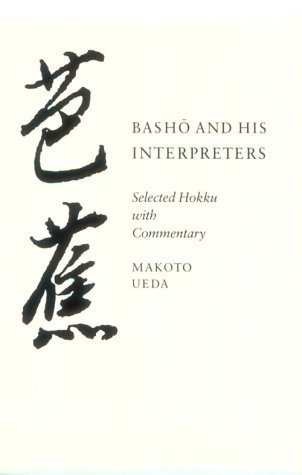What do you think?
Rate this book


468 pages, Paperback
First published January 1, 1991
The poet is merely playing with words to amuse himself.
From this hokku I cannot visualize Basho embracing the cedar tree.
Basho boldly stole sentiments from other poets’ work, and yet his poems are better than theirs. This is because he was an incomparably superior poet. Mediocre poets do not even know how to imitate or steal from others.
For Basho’s sake, this kind of poem might best be forgotten.
This poem is of a type that is not to my taste. Perhaps I still lack the maturity to appreciate its underlying nature of fukyo. For the time being, however, my inability to appreciate it does not bother me.
Coal has a very bad smell. The poet commanded the plum blossoms to overpower it.
The poet’s virtuosity here is almost intimidating.
Basho made the comment to Kyorai probably because he felt that there was no sense in mourning spring’s end in Tanba, where people were like monkeys and did not understand furyu. They would not lament spring’s passing, anyway.
I can visualize the poet admiring the moon. Yet I feel as if the poem were made to order. Though I think it is skillfully made, it does not stir my emotions with irresistible force.
Because of the wording in its first two phrases, we cannot help feeling there is some kind of allegorical meaning in this hokku. But, with what we have, we cannot determine exactly what this meaning is. That is all right; as long as we sense this is an allegorical poem, it is enough.
Product of a townsman’s life and written in a lighthearted tone, the poem nevertheless has something in it that makes everyone nod in agreement.
The poem makes me want to get up early in the morning.